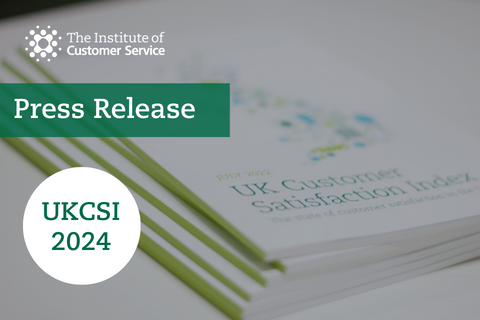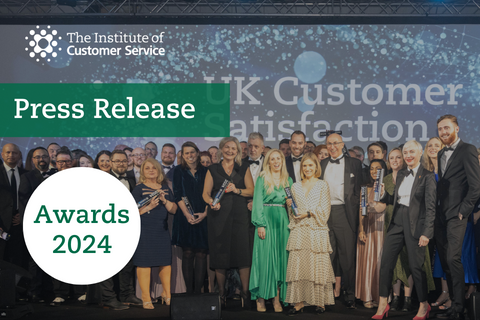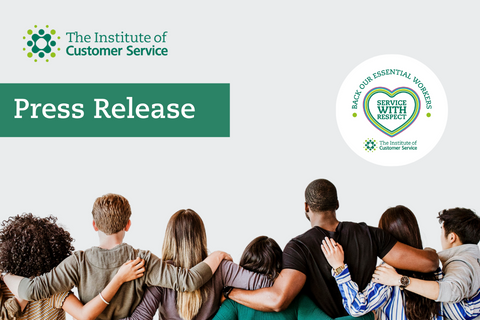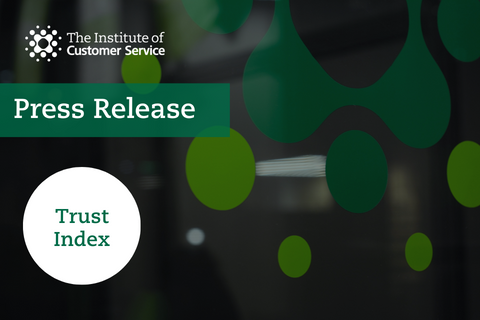A new report from The Institute of Customer Service reveals that UK consumers are more than willing to pay a premium for goods and services, in return for excellent service – despite the cost-of-living crisis. The report also warns that customer satisfaction across the UK has fallen to its lowest level since 2015, in a sign that customers are voting with their feet in protest of poor service.
The latest UK Customer Satisfaction Index (UKCSI), which since 2008 has benchmarked customer satisfaction at over 200 of the UK’s leading businesses, shows that 31.3% of customers say they are prioritising excellent service, even if it costs more, when purchasing goods or services.
By contrast, poor service is costing businesses dearly; nearly half (41%) of customers who are dissatisfied with a business say they avoid using it again, and just 1.5% say they would spend more with that business going forward.
Ocado tops the table for best service
Ocado, the online food and groceries business, scored the highest satisfaction rating – and alongside this, achieved ‘record’ high sales over the holiday period. Ocado is followed by first direct, John Lewis, and Nationwide.
| Ranking | Organisation | Sector | Jan-24 Score |
| 1 | Ocado | Retail (Food) | 85.7 |
| 2 | first direct | Banks & Building Societies | 85.3 |
| 3 | John Lewis | Retail (Non-food) | 85.1 |
| 4 | Nationwide | Banks & Building Societies | 84.8 |
| 5 | Tesco Mobile | Telecommunications & Media | 84.6 |
| 6 | Costco | Retail (Non-food) | 84.2 |
| 6 | Jet2holidays.com | Tourism | 84.2 |
| 8 | Timpson | Services | 84.0 |
| 9 | Holland & Barrett | Retail (Non-food) | 83.9 |
| 10 | Starling Bank | Banks & Building Societies | 83.7 |
When asked why they would be willing to pay more for excellent service, customers cited trust in the company (31%) and access to support and advice (30%) as the key drivers.
The report highlights the strong returns to be gained for organisations that prioritise great service, outlining that businesses with higher satisfaction scores also have higher earnings (EBITDA) – 10 percentage points higher on average – and staff productivity (average revenue per employee: £717,739 for above average vs £297,025 for below average) than their competitors, over the last 5 – 6 years.
Commenting on the latest report, Jo Causon, CEO of the Institute of Customer Service, said:
“These latest figures are a clear signal to business leaders and board members that customer service is not an optional extra, but a strategic imperative. Customers are demanding better service, especially in times of rising costs and uncertainty. They will not hesitate to switch to organisations that they can trust to deliver on their expectations.”
“It also highlights that the gap between businesses getting it right, and those getting it wrong, is widening – and the impact of a strong service strategy on an organisation’s bottom line has never been clearer.”
“Trust is a precious asset that can take years to build, but seconds to lose. On the other hand, when customers trust an organisation, they are more likely to try new offerings, share positive feedback, and give them a chance to resolve any issues.”
The UK Customer Satisfaction Index is a twice-yearly report based on 59,250 survey responses provided by more than 15,000 individual customers, representative of the UK adult population.



